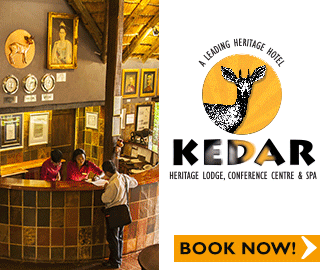
Tanzania: Boosting Agricultural Productivity
BY BRUCE GERMAINE 2 SEPT, 2016 09:46
Tanzania – an exotic name that rolls off the tongue like a well-intended metaphor. Certainly a country that has attracted international attention in terms of its economic growth and making its mark among the top 5 fastest growing economies in Africa.
With a population of 49 million and the ninth largest economy in Sub-Saharan Africa, it has maintained a steady growth rate of around 7 % for last couple of years. Among the advantages is the efficient air transport system, political stability, a free market economy, and it is strategically located in terms of Dar es Salaam being the gateway port that services 8 land locked countries, plus it has an abundance of natural resources coupled with 44 million hectares of arable fertile land – an all-in-one package for investors.
Although Tanzania’s economy has been steadily growing in the last decade, agriculture dominates the landscape in terms of employing approximately 80% of the local population, and Tanzania is slowly making progress towards diversifying its reliance from agriculture to other industries.
The economic growth has been improved by progress within the construction, communication, power generation, manufacturing, health and administration sectors.
In 2013 its economy expanded and overtook that of Kenya and Uganda, a positive sign which helps in keeping Tanzania one of the preferred destinations for foreign investments in Africa and certainly top spot in East Africa.
Some of the key issues that are attracting investors are the Tanzanian government’s commitment to sound macro-economic policies, an effective privatization program and rich mineral resources.
Large infrastructure projects also attracted foreign investments with port facilities, oil and energy production and gas liquification projects taking the front positions. Tanzania’s major investors come from the United Kingdom, China, South Africa, the European Union and Canada.
Although Tanzania shows amazing progress in terms of its growth, one cannot lose sight of the fact that it remains emerging market terrain with certain challenges such as unreliable power, underdeveloped transport system, bureaucracy, a lack of technological resources and complex land laws.
Despite the positive economic growth rate, Tanzania has not adequately addressed poverty reduction by not succeeding to raise its productivity in agriculture over the last 20 years. With a predominantly agricultural sector dominating the labour force with a 4% growth rate, three quarters of the population still live in rural areas and eighty percent of its citizens live in rural households.
The Tanzanian government has not been sitting idle though, together with donors both have used resources to improve some social sectors but simply not have enough resources to also address the agriculture sector. The lack of secure land tenure to guarantee that farmers in the rural districts do not lose their land is one of the most sensitive issues and has led to restraint from investors that could have otherwise enhanced productivity. The food processing and other related agricultural produce industries within those manufacturing sectors are very limited in rural areas resulting in hardly any new created jobs.
On the other hand, the bulk of economic growth occurred within telecommunications, financial services, retail trade, mining, tourism, construction and other manufacturing sectors. In previous years this was driven largely by public spending and international aid but now it is mainly generated by private sector initiatives with the most growth being experienced by capital-intensive industries in urban areas. Time will tell but currently the growth experienced has failed to address the big challenges of increasing employment by creating additional jobs across the social spectrum.
Nevertheless, the Tanzanian economy continues to flourish as the government focuses on industrialization and infrastructure developments such as the US$ 4.0 billion oil-export pipeline agreement with Uganda in April as well as a signed a deal regarding a USD 900 million railway project that will connect Rwanda’s rail links to Tanzania’s main port. In addition the Central Corridor railway project is yet another one of Tanzania’s major infrastructure projects and set to receive USD 6.8 billion in foreign investments by Chinese investments in order to implement phase 1 of the project which aims to establish a railway connection from Dar Es Salaam to Mwanza, at the north-west border.
Dar Es Salaam is one of the fastest growing cities in Africa and the country has experienced a small but growing urban middle class who are demanding very poignant political and economic services - cheap electricity, imported goods, and better urban social services and infra-structure (transport, schools, health) in the urban areas. It is a double edged sword as the government tries to satisfy the middle class while simultaneously walking a tightrope to balance inequalities within communities. The danger of a destabilization of the relative continued peace, stability and social cohesion in Tanzania is, as is the case with numerous African countries, a sleeping giant.
With discovery of significant gas reserves apart from the country’s already large mineral resources, investors are eager to cash in on Tanzania’s long-term economic prospects which appear promising.

With discovery of significant gas reserves apart from the country’s already large mineral resources, investors are eager to cash in on Tanzania’s long-term economic prospects which appear promising.

However, as with all other long term projects, it is highly likely that the benefits from the exploitation of natural mineral reserves will not materialize for another 5 years which will pressure the Tanzanian government to keep concentrating on its macroeconomic policies.
For now, the country’s financial sustainability is not yet in jeopardy but debt management is essential with a strong need for significant strengthening of control of public investments.
In terms of law and order within the region, a prerequisite for new investors who want to have guarantees that their interests are protected not only in the short but also long term, Tanzania has a relatively positive human rights track record. Ratification of its own international human rights mechanisms by establishing relevant frameworks that support democratic governance are in place although there is still work to be done to improve overall conditions.
The constitution addresses basic civil and political rights which include freedom of movement assembly and freedom of speech. To freely express oneself will need some new legislation to be in place as the current legislation needs to be updated on par with the rest of the world’s free economies.
While the judiciary seems largely independent , corruption remains a major challenge – a red flag for any new business, and although some companies may be willing to grease some palms for ease of a smoother bureaucratic passage, their own country’s laws prevent them from doing this, such as the UK Bribery Act.
Efforts to promote the practical implementation of economic, social and cultural rights are in place, unemployment still presents a challenge and international labour standards are sometimes not strictly adhered to. This is not unique to African countries on the rise as they try to climb onto the global bandwagon of progress.
Sign of progress include Tanzanian citizens that are beginning to demand more insight and influence than previously. Accountability and responsibility rank high among its citizens, and both the media and civil society are starting to demand that the government actually govern properly – and be accountable to the voting public – with the fight against corruption being one of Tanzania’s biggest challenges.
However, Tanzania’s score fares better than numerous other African countries when it comes to Public Financial Management (PFM) and although laws, regulatory bodies and systems have been promulgated during the last 15 years, compliance to these very same standards remains a work in progress.
When it comes to the Tanzanian taxman, he is partially effective in collecting tax revenues equal to 18% of the GDP and no mean feat by African country standards, but the complex and non-transparent system of tax exemptions does fuel the fire of corruption which is estimated to rob the state coffers of around 4% of the GDP.
This issue definitely requires political will if Tanzania is to move beyond where it stands now and claim its rightful place as one of Africa top 5 fastest growing economies.
A city market in Tanzania. Photo: Supplied














